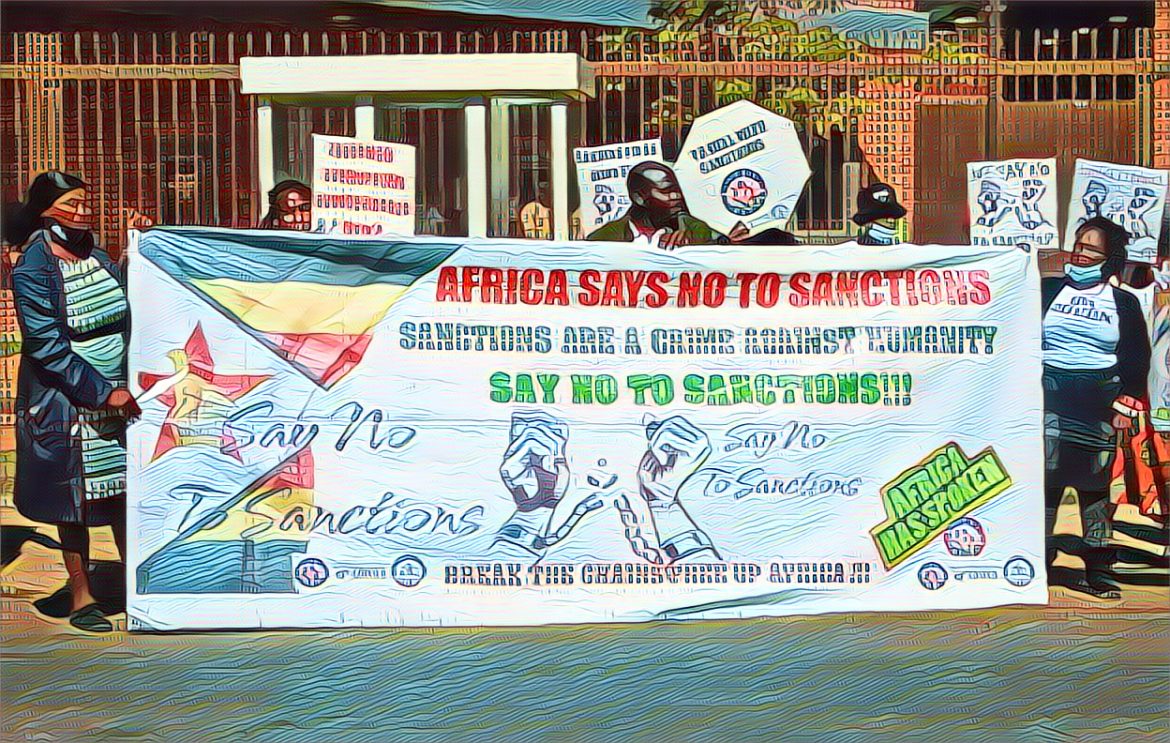Zimbabwe’s Vice President Constantino Chiwenga condemned international sanctions on Wednesday, blaming them for over $150 billion in losses and stifling the southern Africa region’s economic health.
Addressing anti-sanction demonstrators, Chiwenga described the financial constraints as Zimbabwe’s crippling “albatross,” barring its global capital access. These punitive measures trace back to early 2000 allegations of election malpractices and human rights violations, prompting action from the European Union and the United States.
“Our nation confronts over $150 billion in repercussions due to frozen assets, trade embargoes, and various support restrictions since 2001,” Chiwenga emphasized, slamming the sanctions as “heinous and illegal.”
Corroborating this assertion, Stevenson Dhlamini, an economics professor at Zimbabwe’s National University of Science and Technology, acknowledged the government’s consistent stance over the years.
“The compounded effect of actions from the U.S., EU, and U.K. could indeed hover around this financial mark,” Dhlamini noted.
However, the narrative faces skepticism. Prosper Chitambara, a leading economist at the Labor and Economic Development Research Institute of Zimbabwe, argues that the economic turmoil intertwines with numerous issues beyond sanctions.
He questioned, “How can we disentangle sanctions’ impacts from corruption, external, or climate-induced shocks? Quantifying this is extremely complex.”
Post-demonstration, Chiwenga, amidst civil servants and Zanu PF party adherents, asserted Zimbabwe’s resilience. “Sanctions inflict pain on our citizens. Our economy’s potential growth has been stunted, simply because we redistributed land to our populace,” he declared, dismissing other allegations as baseless. “Regardless, Zimbabwe foresees prosperity, beyond sanction constraints.”
However, optimism for sanction relief waned following the Southern African Development Community’s critique of Zimbabwe’s August 23 elections, debunking their credibility. This development further cements the international community’s cautious stance, reflecting persistent apprehensions regarding the nation’s governance standards.


